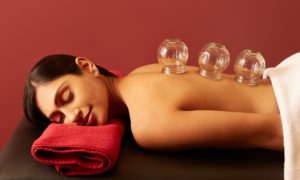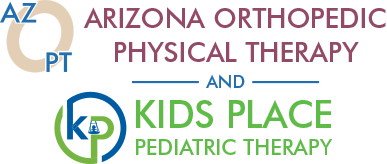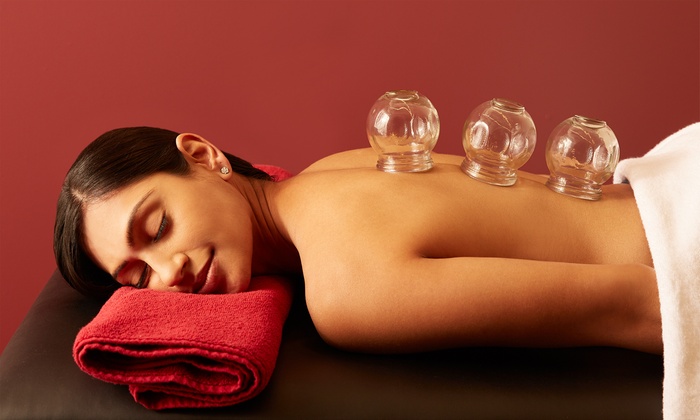Cupping Therapy in Arizona Physical Therapy: What You Need to Know
 Cupping, also known as Myofascial Decompression, is a type of alternative therapy that originated in China in 241 AD. However, it became more mainstream following the 2016 Summer Olympics. You may remember seeing circular marks all over Michael Phelps’ back. This gave rise to cupping’s popularity throughout physical therapy.
Cupping, also known as Myofascial Decompression, is a type of alternative therapy that originated in China in 241 AD. However, it became more mainstream following the 2016 Summer Olympics. You may remember seeing circular marks all over Michael Phelps’ back. This gave rise to cupping’s popularity throughout physical therapy.
What Is Cupping Therapy?
Cupping therapy involves creating a localized suction to mobilize soft tissues, stimulate blood and lymph flow, and promote healing. While traditional cupping uses heat, dry cupping—the method commonly used in physical therapy—relies on a pump to create suction.
The benefits of cupping include:
- Increased Blood Circulation: Enhances oxygen and nutrient delivery to the treated area.
- Reduced Muscle Tension: Relieves tightness and improves overall mobility.
- Improved Healing: Promotes cell repair, encourages the formation of new connective tissues, and stimulates the development of blood vessels in affected areas.
How Is Cupping Used in Physical Therapy?
In physical therapy, cupping is not a standalone treatment. Instead, it is incorporated into a comprehensive rehabilitation plan to address musculoskeletal conditions. The primary goal of physical therapy, including cupping, is to improve your mobility, stability, and functional movement patterns.
During a session, a physical therapist uses a cup and pump to create mild suction on the targeted area. This suction pulls the skin and underlying tissue upward, encouraging the release of tension and improving tissue health. Depending on the treatment area, multiple cups may be used simultaneously. For added benefits, the therapist may gently move the cups to perform a cupping massage, which further facilitates soft tissue release.
Who Can Benefit From Cupping Therapy?
Cupping is generally safe, but it’s not for everyone. It’s most effective for individuals experiencing:
- Muscle tightness or pain
- Limited mobility or stiffness
- Recovery needs after an injury
However, cupping is not recommended for individuals with:
- Fragile or damaged skin
- Active cancer
- Pregnancy
Your physical therapist will assess whether cupping therapy is suitable for your specific condition and overall treatment plan.
Why Choose Cupping Therapy in Arizona?
At AzOPT, we use evidence-based approaches to help you recover and regain your optimal function. Cupping is just one of many tools available to address pain, tightness, and movement limitations. By integrating cupping with other therapies like stretching, exercise, and manual techniques, we provide a comprehensive solution tailored to your needs.
What to Expect During a Cupping Session
Cupping therapy is straightforward, effective, and comfortable for most patients. Here’s what you can expect:
- Preparation: Your therapist will clean the skin and place the cups on the affected area.
- Suction: A pump creates mild suction, gently lifting the tissue.
- Duration: The cups are left in place for a few minutes, depending on your specific needs.
- Movement (Optional): For added benefits, the therapist may move the cups to release additional tension.
You might notice temporary circular marks on your skin after treatment. These are harmless and usually fade within a few days.
Get Started With Cupping Therapy at AzOPT
Are you curious if cupping therapy is right for your recovery? At AzOPT, we specialize in personalized physical therapy plans that include techniques like cupping to enhance your healing process. Contact us today to schedule an appointment and discover how our Arizona physical therapy services can help you feel and move better.







